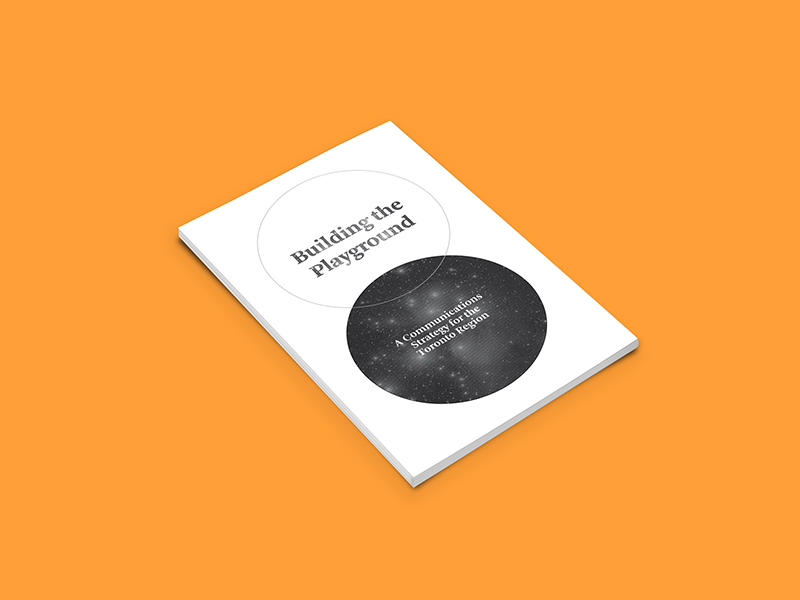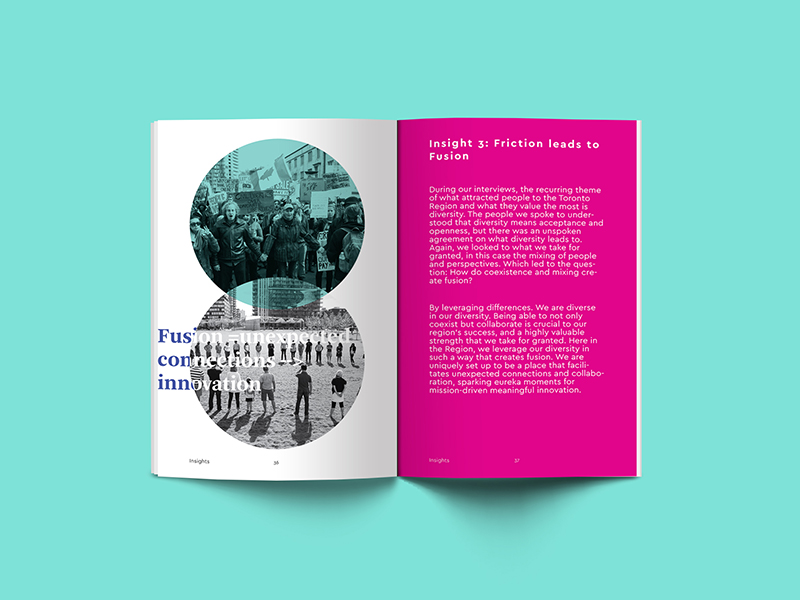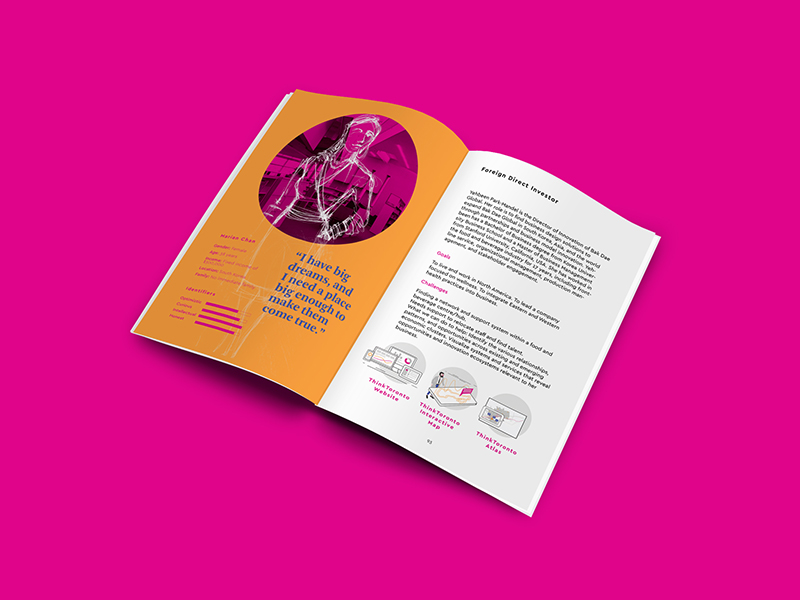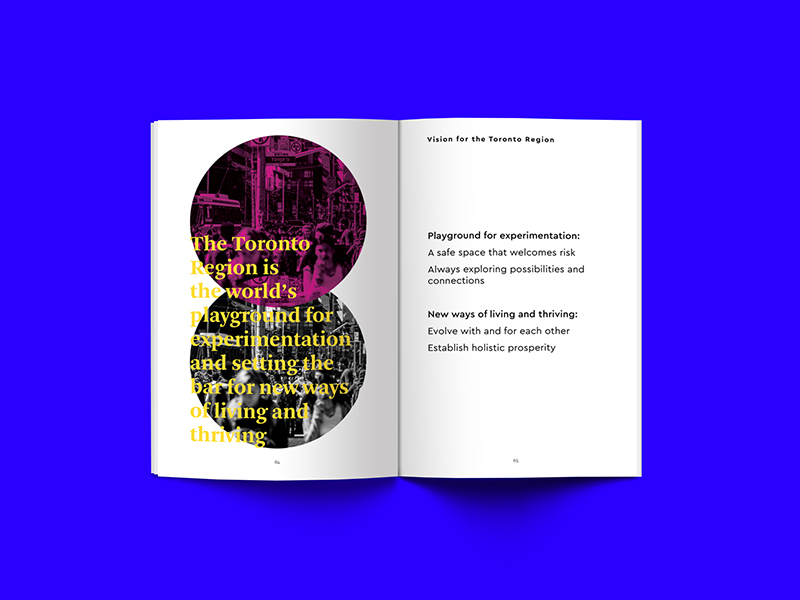'Setting the Bar: A Communications Strategy for the Toronto Region' is a publication that presents a vision of a unified regional identity for the Greater Toronto Area
Client: Toronto Global
Services: user research | quantitative design research | qualitative design research | concept development | copywriting | copyediting | publication design




CHALLENGE
The challenge was to develop a communications strategy that identifies and articulates the shared narrative and vision of the Toronto region, focusing on its identity and economic assets.
RESEARCH METHODS
1. Regional Tours
The project began with several tours of the Toronto region.
2. Intercept Surveys
Widely distributed survey data was collected in tandem with the intercept surveys to avoid frame coverage errors. The intercept surveys were distributed on transit throughout the region.
3. Email Surveys
The primary objective of the survey was to answer the following question: Are perceptions of regional identity influenced by age, sex and geography? Surveys were emailed to participants (sample size 80 participants from a 20% response rate). The study used probability sampling (the population was divided into clusters based on geographical proximity, and then specific areas were selected). The Wilcoxon Rank-Sum test was used to determine if there is a statistically significant association between categorical survey responses provided for two different survey questions (i.e. is there a statistical relationship between question A (gender) and question B (a question requiring a Likert-scale response). There were statistically significant associations between the categorical responses thereby showing that perceptions of regional identity are influenced by age, sex and geography.
4. Conference Workshop
Research for this project included a co-creation session with members of the client's target audience. The 'Cluster Conference', hosted by the Institute for Competitiveness and Prosperity (ICP) brought together thought leaders, stakeholders and government officials invested in creating a more prosperous Toronto region. This was a great opportunity to conduct contextual inquiries and identify areas of opportunity.
As a component of the conference, the Institute without Boundaries (IwB) hosted a collaborative working session to engage participants in identifying emerging clusters, initiatives to support the growth of these clusters and imagine the steps needed to scale, support and communicate these clusters within the Toronto region. Participants were guided through brainstorming and working sessions using the IwB design sprint methodology to generate collaborative ideation. Results were tabulated and informed subsequent research efforts by the IwB in collaboration with the ICP.
5. Secondary Research
Secondary research was conducted to generate insights about the significance of geographic regions. Regions represent a forgotten space for economic and democratic decision-making, despite being best placed to respond to global economic and national democratic challenges.
Outcome
The communications strategy was presented to the client and is currently moving towards implementation.